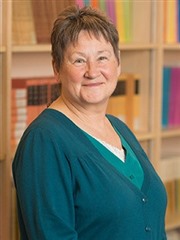
Department of Sociology
SOCI 435: Partnerships for Participatory Development
Dr. Dawn Currie has been with ISL for over ten years, right from the beginning. Her participation began, she remembers, with a discussion of global citizenship at UBC and how students might benefit from participating in international placements with a focus on discussions about the idea of global citizenship and who can be a global citizen and that also highlighted power and privilege and allowed reciprocal learning to take centre stage. In developing her sociology course, “Partnerships for Participatory Development,” Dr. Currie made it clear that it wasn’t about students having some kind of experience. It was about social justice principles and their place in international development landscapes.
Dr. Currie’s course is designed to encourage students to reflect critically about who is producing knowledge, what respectful research looks like in international contexts, and the ethics of these kinds of partnerships. Furthermore, Dr. Currie says, the course builds capacity in students to actually do fieldwork. The benefits for the community can be profound: the partner organization benefits from having a competent student undertake a project designed to empower and build capacity in local youth. The local youth and the students form friendships and work together on these capacity-building projects: it is reciprocal learning come to life.
Students engaging in SOCI 435 should finish the course with an understanding of exclusivity of a western education and often become advocates for including indigenous knowledge in their studies. Dr. Currie assists students to “interrogate knowledge,” with the goal that students will “deconstruct and reconstruct knowledge by examining its social and material context.” Furthermore, Dr. Currie hopes students will be able to use their experience to inform their life and career goals.
“As I watch students engage with issues and confront their own power and privilege, my role shifts from a teacher in the classroom to a mentor in the field. It’s among the most rewarding experiences I’ve ever had.”
Her experience as a teacher and mentor has made Dr. Currie confront issues she wouldn’t necessarily have engaged with in a classroom setting. The real challenge in her work, she says, comes when her students engage with issues and confront their own power and privilege. With this, she must shift from a teacher in the classroom to a mentor in the field. The shift, however, “is among the most rewarding teaching experiences I’ve ever had.” Any instructor would feel the same, she asserts. To work with students who are engaged with the course at such a high level is a benefit for any instructor.
For students hoping to take on her course or another offered through ISL, Dr. Currie advises “jumping right in there!” Students who do, she notes, often find it a life-altering experience. For instructors looking to get involved, whether by starting a course of their own or by conducting research in similar areas, Dr. Currie looks forward to creating a “community of practice: a network of ISL instructors sharing material and experience.” She advises instructors to recognize the importance of assisting the next generation in engaging at a global level – getting students involved beyond donating money and connecting online. By recognizing the role partnerships play in community development, she says, it will be possible to create intensely positive change.


